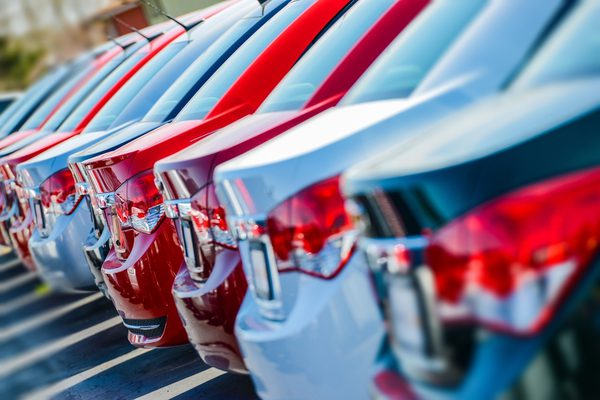Car Shopping? Solving the Lease vs. Buy Conundrum
Leasing vs. buying a car—what makes more sense for you?
Are you shopping for a new ride? Maybe you want to drive the latest make or model but prefer a relatively low monthly payment with no long-term commitment. Or perhaps you dream of finally eliminating those car payments from your monthly budget and owning them outright.
The choice between buying and leasing can be a tough call for some consumers. For decades, leasing was typically limited to high-end luxury vehicles. The landscape has shifted in recent years as people lease more mainstream sedans and SUVs. With an array of options and interest rates for both car loans and leases at historical lows, it can be hard to determine what makes sense for your wallet and lifestyle.
While there is no perfect answer, sorting out factors related to cost and personal preferences can help you make a decision that works best for you.
Look beyond the monthly payments
Leasing a car comes with its perks, with the major benefit lying in its ability to secure lower monthly payments. This option grants access to high-end vehicles that might have been unattainable otherwise. Spreading out the costs over the lease period facilitates better budget management and a chance to revel in a more luxurious driving experience. Nevertheless, factors like mileage restrictions and potential fines for damages should be taken into account. Personal requirements and financial situations should guide the decision-making process, ensuring alignment with long-term aspirations.
Looking beyond the monthly payments, consider additional costs associated with both purchasing and leasing a vehicle. Down payment expenses and ongoing maintenance costs can significantly vary between the two options. While some leases might necessitate a down payment, outright car purchases typically demand a larger upfront investment (around 10-20 percent).
The wear and tear on a new, leased car might be more manageable, especially if your daily commute involves bumper-to-bumper traffic and you have young drivers prone to minor accidents. New cars usually come with warranties, minimizing repair costs initially. However, as vehicles age, maintenance expenses can increase, warranting a well-planned budget. The financial benefits gained from clearing a car loan should leave ample room for upkeep and repairs.
Moreover, depreciation remains a big factor. On average, a newly purchased car depreciates by 10 percent once it’s driven off the lot, with subsequent mileage contributing further to the reduction in value. While leasing seems to shield against this depreciation concern, lease agreements often impose mileage limits, and surpassing these limits incurs substantial penalties, ranging from 5 to 20 cents per mile. Consider these factors in the decision-making process.
Align your driving and financial goals
Understanding your driving needs significantly influences the choice between car purchase and lease. Opting for a lease is ideal if you desire stunning, envy-inducing wheels or require a newer car for professional reasons. Consider how leasing benefits business owners, enabling certain tax deductions and making a lasting impression. Nonetheless, be cautious of potential penalties when terminating a lease. On the other hand, owning a car outright grants the freedom to sell or trade it in at your convenience, ensuring greater financial flexibility.
Leasing vs. buying a car? It depends
The math may show that over the life of a lease (e.g., three years), your total costs are less than if you had bought a car outright. However, don’t forget: after you pay off a car loan, you own the vehicle as an asset. Your cost of ownership is further reduced if you own a car with a high resale value.
If you generally enjoy driving a car for an extended period, and a dealership or bank offers low or even zero percent financing, buying is the way to go. From a purely financial perspective, the most cost-effective way to buy a car is to purchase something pre-owned with competitive financing. The cash you would otherwise use to purchase outright can work harder for you elsewhere, and you don’t risk off-the-lot depreciation.
The truth is that, for most people, leasing makes less financial sense than buying. But for some, leasing may make a great deal of sense when it comes to personal preference and flexibility.
No matter which option you choose, make sure to shop around. Exact prices of vehicles can vary greatly even within the same region of the country. The terms of a lease or terms of financing can vary greatly, too. Do your homework and empower yourself to walk into a dealership with supporting information.
Read more from our blog:





